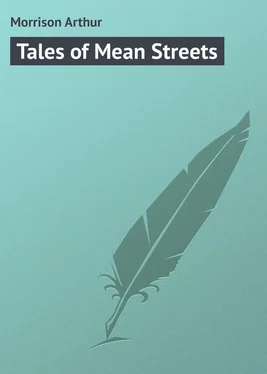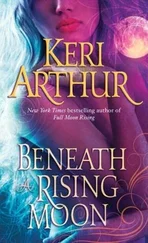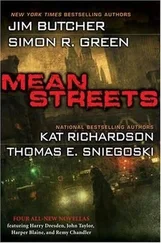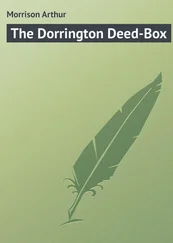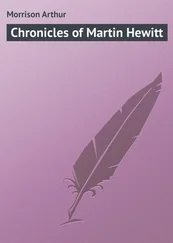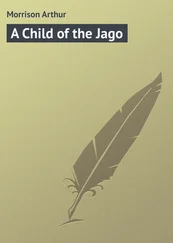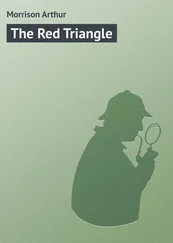Arthur Morrison - Tales of Mean Streets
Здесь есть возможность читать онлайн «Arthur Morrison - Tales of Mean Streets» — ознакомительный отрывок электронной книги совершенно бесплатно, а после прочтения отрывка купить полную версию. В некоторых случаях можно слушать аудио, скачать через торрент в формате fb2 и присутствует краткое содержание. Жанр: foreign_prose, на английском языке. Описание произведения, (предисловие) а так же отзывы посетителей доступны на портале библиотеки ЛибКат.
- Название:Tales of Mean Streets
- Автор:
- Жанр:
- Год:неизвестен
- ISBN:нет данных
- Рейтинг книги:3 / 5. Голосов: 1
-
Избранное:Добавить в избранное
- Отзывы:
-
Ваша оценка:
- 60
- 1
- 2
- 3
- 4
- 5
Tales of Mean Streets: краткое содержание, описание и аннотация
Предлагаем к чтению аннотацию, описание, краткое содержание или предисловие (зависит от того, что написал сам автор книги «Tales of Mean Streets»). Если вы не нашли необходимую информацию о книге — напишите в комментариях, мы постараемся отыскать её.
Tales of Mean Streets — читать онлайн ознакомительный отрывок
Ниже представлен текст книги, разбитый по страницам. Система сохранения места последней прочитанной страницы, позволяет с удобством читать онлайн бесплатно книгу «Tales of Mean Streets», без необходимости каждый раз заново искать на чём Вы остановились. Поставьте закладку, и сможете в любой момент перейти на страницу, на которой закончили чтение.
Интервал:
Закладка:
Morrison Arthur
Tales of Mean Streets
INTRODUCTION TO THE AMERICAN EDITION
It was considered an intrepid thing for Walter Besant to do when, twelve or thirteen years ago, he invaded the great East End of London and drew upon its unknown wealth of varied material to people that most charming novel, "All Sorts and Conditions of Men." Until then the West End knew little of its contiguous neighbor in the East. Dickens's kaleidoscopic views of low life in the South of London were manifestly caricatures of the slum specimens of human nature which he purposely sought and often distorted to suit his bizarre humor. Mr. Besant may be fairly considered as the pioneer of those who have since descended to the great unchartered region of East London, about which, so far as our knowledge of the existing conditions of human life in that community are concerned, we remained until, as it were yesterday, almost as ignorant as of the undiscovered territories in Central Africa. Contemporaneous with Mr. Besant's "discovery" of East London began the eastward march of the Salvation Army, which has since honeycombed this quarter of the metropolis with its militant camps. Gradually the barriers were thrown down, and the East has become accessible to literature and to civilization as it never had been to the various Charity and Church missionary organizations.
It was as the secretary of an old Charity Trust that Mr. Arthur Morrison first made his acquaintance with East London, and by dint of several years' residence and attentive study acquired his knowledge of the East End and its myriad denizens. Right in the midst of the great square bounded by the Thames, the Lea, the City, Kingsland, and the Hackney open spaces lie the dreary "Mean Streets" which Mr. Morrison has described with uncommon power and vigor, and among which the operations of his secretaryship engaged him laboriously for years. The possibility of presenting his observations of East London in narrative form began to grow upon him while casting around for literary pabulum to convert into magazine articles, and in October, 1891, appeared his first sketch, entitled "A Street," in "Macmillan's Magazine." This, in a remodelled form, now serves as an introductory chapter to the present collection. The article in "Macmillan's" attracted a good deal of attention, and won for its author the good fellowship of Mr. W. E. Henley, who encouraged him in his idea of writing a series of short stories and studies which should describe East End life with austerity, restraint, and frankness. A large number of the "Tales" appeared in the "National Observer" and several followed in the "Pall Mall Budget." The dedication to Mr. Henley of "Tales of Mean Streets" is a grateful acknowledgment by the author of the kindly and frank counsel of his friendly critic; whose criticism, it may be added, has been mainly directed towards the author's craftsmanship – his conceptions of the life he was portraying the critic was wise enough to let alone. Mr. Morrison has also been indebted on the side of art in fiction to Mr. Walter Besant, whom he met in the East End.
Mr. Morrison has been fortunate in his literary experience. He is another witness to the fact that merit makes its way from the outside, without necessarily receiving aid or having influence brought to bear on editors or publishers. It is curious to note that a manuscript of his which happened to be rejected once was accepted on the day following, and now has a place in this book. Some cycling verses contributed as a lad to a cycling magazine began his literary career, and for some years he continued to write on what was then a novel sport. He drifted into broader channels and became a frequent contributor to popular papers and magazines. During this period he was working on the Charity Commission, and wrote only by way of relaxation. About five years ago he resigned his office on the Trust, and, occupying chambers near the Strand, joined the editorial staff of an old-established evening paper, where for some months he continued to write leaderettes and miscellaneous articles and notes until, becoming convinced that he could not do justice to such ability for better work which he might possess amidst the grinding routine of newspaper scribbling, he gave up his post and applied himself to more serious writing, contributing to the "Strand," and other magazines and reviews. About this time he began the series which is now gathered under the common title "Tales of Mean Streets." On its recent publication in England it was received with instant recognition as a book of extraordinary merit, and it has met with signal success. Some idea of the strong impression which it has made in England may be gathered from Mr. Arthur Waugh's warm tribute to the author's distinction in a recent letter to the "Critic." "He deals exclusively," writes Mr. Waugh, "with life in the East End of London, and he does so with a fearlessness and originality which are of more value than many sermons. I do not know whether his book is published in America; but if so, I strongly advise every reader of this letter to secure it. Those who do so will learn from its pages more of the degradation and misery of a certain side of London life than they could in many weeks of philanthropic 'slumming.' Mr. Morrison's will be a name to conjure with in another season."
Mr. Arthur Morrison is but thirty-one, and has just stepped on to the threshold of literary fame as a writer of decided promise and strength. He has only broken ground as yet in the field which has brought him his spurs, and is at present contemplating a longer story of East End life. The number of those who have attempted to write familiarly of the seamy side of our great cities from close observation and laborious study of its life in a first-hand fashion is so small that it is easy to believe that the author of "Tales of Mean Streets," possessing as he does the prime qualities of a novelist, has a future before him in an unprecedented form of literature.
JAMES MACARTHUR. New York, March 2, 1895.INTRODUCTION
This street is in the East End. There is no need to say in the East End of what. The East End is a vast city, as famous in its way as any the hand of man has made. But who knows the East End? It is down through Cornhill and out beyond Leadenhall Street and Aldgate Pump, one will say: a shocking place, where he once went with a curate; an evil plexus of slums that hide human creeping things, where filthy men and women live on penn'orths of gin, where collars and clean shirts are decencies unknown, where every citizen wears a black eye, and none ever combs his hair. The East End is a place, says another, which is given over to the Unemployed. And the Unemployed is a race whose token is a clay pipe, and whose enemy is soap: now and again it migrates bodily to Hyde Park with banners, and furnishes adjacent police courts with disorderly drunks. Still another knows the East End only as the place whence begging letters come; there are coal and blanket funds there, all perennially insolvent, and everybody always wants a day in the country. Many and misty are people's notions of the East End; and each is commonly but the distorted shadow of a minor feature. Foul slums there are in the East End, of course, as there are in the West; want and misery there are, as wherever a host is gathered together to fight for food. But they are not often spectacular in kind.
Of this street there are about one hundred and fifty yards – on the same pattern all. It is not pretty to look at. A dingy little brick house twenty feet high, with three square holes to carry the windows, and an oblong hole to carry the door, is not a pleasing object; and each side of this street is formed by two or three score of such houses in a row, with one front wall in common. And the effect is as of stables.
Читать дальшеИнтервал:
Закладка:
Похожие книги на «Tales of Mean Streets»
Представляем Вашему вниманию похожие книги на «Tales of Mean Streets» списком для выбора. Мы отобрали схожую по названию и смыслу литературу в надежде предоставить читателям больше вариантов отыскать новые, интересные, ещё непрочитанные произведения.
Обсуждение, отзывы о книге «Tales of Mean Streets» и просто собственные мнения читателей. Оставьте ваши комментарии, напишите, что Вы думаете о произведении, его смысле или главных героях. Укажите что конкретно понравилось, а что нет, и почему Вы так считаете.
